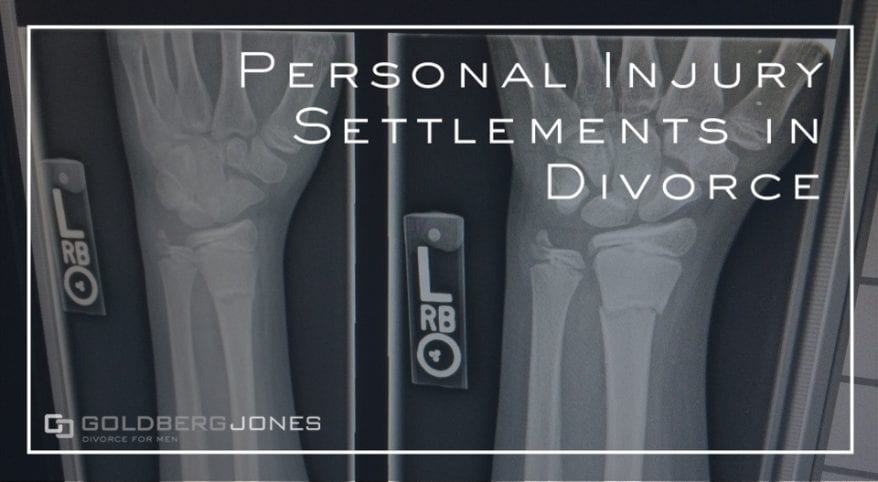If you’re thinking about divorce, or are in the middle of a separation, you know money and property form the core of many disputes. If divorce is the forest fire, money is often the kindling.
Where that money comes from has a lot to do with who gets it in the end. Regular paychecks get treated differently than things like an inheritance or a gift. One thing that often comes into play is a personal injury settlement.
How Do Personal Injury Settlements Factor Into A Divorce?
The court considers almost all money accrued during the time of marriage as marital property. This means, in the eyes of the law, both parties remain equally entitled to the funds. The key word here is almost.
We mentioned that laws apply differently to gifts and inheritance. But do the same rules apply to personal injury settlements?
How Are They Handled in Divorce?
Laws regarding marital assets vary from state to state. The nine-community property states, of which Washington is one, view marital assets as equally belonging to both spouses.
This doesn’t mean they divide everything in half, but each party has an equal claim on all money and property accumulated during the marriage.
The silver lining is that not all assets are considered community property. Any money or property received as an inheritance or personal injury settlement does not automatically fall into the community property pot.
However, there is a grey area and things are not always as clear as they seem.
If one spouse inherits a cash sum or receives a personal injury settlement, and deposits the money into a joint account subsequently used by both spouses, it can be argued those funds become a marital asset and therefore community property.
Additionally, using this money to pay off things like a shared mortgage or buy a common vehicle further muddies the water.
In order to avoid your spouse from potentially building a case for your settlement money, keep those funds separate. The more the funds are commingled, the more likely they are to be considered community property in a divorce.
Related Reading: How Is Debt Divided In Washington State?
Can A Settlement Be Community Property?
During a divorce, any large sums of money granted to one party are evaluated as either community property or individual property. A personal injury settlement is awarded either as compensation for individual suffering or to restore damaged property or lost wages. The reason behind the award helps define which group the money falls into.
If the court deems personal injury settlement compensation for pain and suffering, it generally does not consider that community property.
The person who sued for pain and suffering is the sole owner of the funds awarded to them.
However, if the settlement is compensation for property damage or lost wages, it is usually considered a marital asset. The court views things like vehicles and income as community property.
So if a settlement reimburses lost wages due to an injury, or to fix a damaged car, it falls into that category.
Related Reading: Divorce or Bankruptcy: Which to File First
What If We Have a Prenup?
In most cases, community property states aim to divide assets so each spouse receives a fair and equitable share. If there is a prenuptial agreement, the court may decide it is within its right to allow an uneven distribution of community property.
If it considers a personal injury settlement a separate asset, and therefore not subject to division, this may affect liability for alimony and child support.
Related Reading: How Do Prenuptial Agreements Work?
Is There A Way to Receive Part of The Settlement?
As usual, there are exceptions to these aforementioned rules. Extenuating circumstances often change how the courts divide a personal injury settlement in a divorce.
These include:
- If an accident happened before the marriage. Money granted for a personal injury settlement generally stays the sole property of the person it was awarded to. The same goes for the date of separation. If both parties lived separately when the incident occurred, the non-injured spouse isn’t entitled to any payouts.
- If the recipient covers certain expenses with non-community property funds. A divorce settlement can include reimbursement for out-of-pocket expenses.
- When one spouse has the right to sue the other spouse for a wrong that occurred during the marriage, the injured spouse may be solely entitled to the award.
- There is a vague exception that states when the personal injury settlement is assigned solely to the injured spouse, the non-injured spouse is intended to be reimbursed in the form of different property. In this instance, the court uses discretion to divide the award any way it deems fit, as long as the injured spouse receives at least 50 percent.
Should I Consult With An Attorney?
The short answer is yes, this is almost always a good idea.
The division of a personal injury settlement can become very complicated very quickly. As is so often the case, it’s in your best interests to consult a divorce attorney with experience in this area. They understand the specific complications and potential hazards this poses to your case.
Related Reading: Moving Out During: What You Need To Know Before You Go
